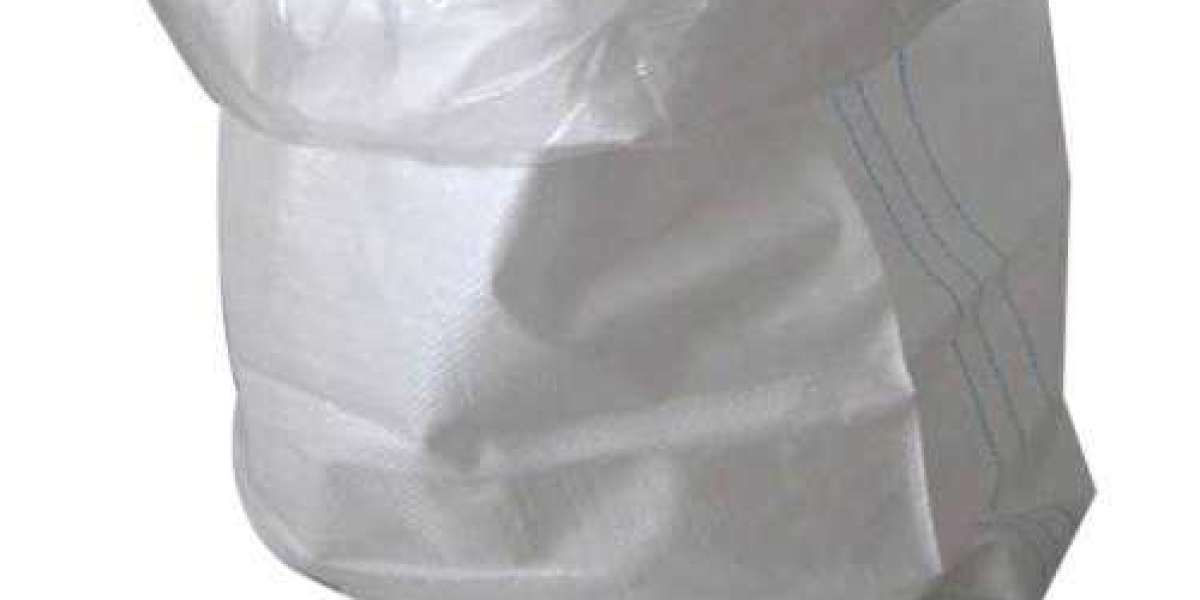In today’s fast-paced world, packaging plays a crucial role in preserving product quality, ensuring safety, and facilitating transportation. Among the various materials used in the packaging industry, High-Density Polyethylene (HDPE) bags stand out for their durability, versatility, and environmental benefits. This blog delves into the world of Hdpe bags 50 kg, exploring their characteristics, applications, benefits, and the future of sustainable packaging.
Understanding HDPE Bags
High-Density Polyethylene (HDPE) is a thermoplastic polymer known for its high strength-to-density ratio. HDPE is produced from the polymerization of ethylene, resulting in a plastic that is both tough and flexible. Hdpe bags manufacturer, made from this material, are widely used in various industries due to their remarkable properties.
Key Features of HDPE Bags
Durability: HDPE bags are highly resistant to punctures and tears, making them ideal for carrying heavy or sharp objects. This durability ensures that products are protected during transportation and storage.
Chemical Resistance: HDPE is resistant to a wide range of chemicals, including acids, bases, and solvents. This makes HDPE bags suitable for packaging products that require protection from chemical reactions.
Moisture Barrier: The non-porous nature of HDPE provides an effective barrier against moisture. This property is crucial for packaging items that need to be kept dry or protected from humidity.
Flexibility: Despite their strength, HDPE bags are flexible and can be easily shaped or sealed. This flexibility enhances their usability in various packaging applications.
Recyclability: HDPE is one of the most commonly recycled plastics. Used HDPE bags can be collected, processed, and remanufactured into new products, supporting a circular economy.
Benefits of HDPE Bags
The popularity of HDPE bags can be attributed to the numerous benefits they offer across different sectors.
Versatile Applications: HDPE bags are used in a wide range of industries, including retail, agriculture, healthcare, and construction. They can be found as grocery bags, garbage bags, agricultural films, medical waste bags, and construction liners.
Cost-Effective: The production of HDPE bags is relatively inexpensive compared to other packaging materials. Their durability also means fewer replacements and lower overall costs for businesses.
Lightweight: HDPE bags are lightweight yet strong. This reduces shipping costs and makes them easier to handle during transportation and storage.
Environmental Impact: HDPE bags have a lower environmental footprint compared to other plastic bags. They are more energy-efficient to produce and can be recycled, reducing the amount of waste sent to landfills.
Hygienic and Safe: HDPE bags are often used in the food and healthcare industries due to their non-toxic nature and ability to provide a hygienic barrier. They help maintain the cleanliness and safety of packaged products.
Applications of HDPE Bags
HDPE bags are incredibly versatile and can be used in various applications across different industries.
Retail and Grocery: One of the most common uses of HDPE bags is in the retail and grocery sectors. They are used as shopping bags, providing a convenient and durable solution for carrying groceries and other retail items.
Agriculture: In agriculture, HDPE bags are used to store and transport produce, seeds, and fertilizers. Their resistance to moisture and chemicals makes them ideal for agricultural applications.
Healthcare: HDPE bags are used in the healthcare industry for disposing of medical waste. Their puncture resistance and chemical inertness ensure that medical waste is handled safely and hygienically.
Construction: In the construction industry, HDPE bags are used as liners for containers and trucks, as well as for storing and transporting construction materials. Their strength and durability are particularly beneficial in this sector.
Waste Management: HDPE bags are widely used for waste collection and disposal. Their strength allows them to hold a significant amount of waste without tearing, making them ideal for garbage bags and recycling bags.
Environmental Considerations
While HDPE bags offer numerous advantages, it is important to address their environmental impact. The use of plastic bags has been a major environmental concern due to issues like litter, ocean pollution, and reliance on fossil fuels for production. However, HDPE bags are a more sustainable option compared to other plastic bags for several reasons.
Recyclability: HDPE bags are highly recyclable. Many recycling programs accept HDPE bags, which can be processed and turned into new products such as pipes, plastic lumber, and new bags.
Reduced Carbon Footprint: The production of HDPE bags requires less energy compared to other types of plastic bags. This results in a lower carbon footprint and reduced greenhouse gas emissions.
Waste Reduction: By promoting the recycling of HDPE bags, the amount of plastic waste sent to landfills can be significantly reduced. Recycled HDPE can be used to create new products, supporting a circular economy.
Sustainable Alternatives: Innovations in the production of HDPE bags are leading to more sustainable alternatives. For example, bio-based HDPE, made from renewable resources like sugarcane, offers the same properties as traditional HDPE but with a lower environmental impact.
Future Trends in HDPE Bags
The future of HDPE bags is shaped by advancements in technology and increasing awareness of environmental sustainability. Several trends are expected to influence the development and use of HDPE bags in the coming years.
Biodegradable and Compostable Options: Research is ongoing to develop biodegradable and compostable HDPE bags. These bags would break down naturally in the environment, reducing plastic pollution and waste management challenges.
Enhanced Recycling Processes: Improved recycling technologies are making it easier to recycle HDPE bags. Advances in sorting, cleaning, and processing techniques will increase the efficiency of recycling programs and the quality of recycled HDPE.
Eco-Friendly Additives: The use of eco-friendly additives in the production of HDPE bags can enhance their properties without compromising sustainability. These additives can improve the bags' strength, flexibility, and resistance to degradation.
Consumer Awareness and Behavior: Increasing consumer awareness about the environmental impact of plastic waste is driving demand for more sustainable packaging solutions. Businesses are responding by offering eco-friendly HDPE bags and encouraging recycling efforts.
Regulatory Changes: Governments and regulatory bodies are implementing policies to reduce plastic waste and promote recycling. Regulations mandating the use of recyclable materials and the reduction of single-use plastics will impact the production and use of HDPE bags.
Conclusion
HDPE bags are a versatile, durable, and sustainable packaging solution that plays a vital role in various industries. Their unique properties make them ideal for a wide range of applications, from retail and agriculture to healthcare and construction. While the environmental impact of plastic bags remains a concern, HDPE bags offer a more sustainable option due to their recyclability and lower carbon footprint.
As technology advances and consumer awareness grows, the future of HDPE bags looks promising. Innovations in biodegradable materials, improved recycling processes, and eco-friendly additives will further enhance the sustainability of Hdpe bags manufacturers in hyderabad. By adopting and promoting the use of HDPE bags, businesses and consumers can contribute to a more sustainable and environmentally friendly future.
Frequently Asked Questions (FAQs):
Q1: How do Singhal Industries' HDPE bags contribute to various industries, and what makes them a preferred choice for packaging?
Singhal Industries' HDPE bags are incredibly versatile and widely used across various sectors due to their remarkable durability and flexibility. In retail and grocery, these bags provide a convenient and robust solution for carrying items, ensuring they remain intact during transport. The agricultural sector benefits from their moisture and chemical resistance, making them ideal for storing and transporting produce, seeds, and fertilizers. In healthcare, their puncture resistance and chemical inertness ensure safe and hygienic disposal of medical waste. The construction industry also relies on these bags for storing and transporting materials, where their strength and durability are particularly advantageous. Additionally, HDPE bags' lightweight nature reduces shipping costs and makes handling easier, further enhancing their appeal across different applications.
Q2: What environmental benefits do Singhal Industries' HDPE bags offer compared to other plastic packaging options?
Singhal Industries' HDPE bags offer significant environmental benefits, making them a more sustainable choice compared to other plastic packaging options. One of the key advantages is their high recyclability, allowing them to be processed and remanufactured into new products like pipes, plastic lumber, and more bags, thus supporting a circular economy. The production of HDPE bags requires less energy, resulting in a lower carbon footprint and reduced greenhouse gas emissions. Furthermore, promoting the recycling of HDPE bags helps in significantly reducing the amount of plastic waste sent to landfills. Singhal Industries is also exploring sustainable alternatives such as bio-based HDPE made from renewable resources like sugarcane, offering the same properties as traditional HDPE but with a reduced environmental impact.
Q3: How is Singhal Industries innovating HDPE bags to meet future sustainability trends and consumer demands?
Singhal Industries is at the forefront of innovation in HDPE bag production, focusing on future sustainability trends and evolving consumer demands. They are actively researching biodegradable and compostable HDPE bags, which would naturally break down in the environment, addressing plastic pollution and waste management challenges. Enhanced recycling processes are another focus, with improvements in sorting, cleaning, and processing techniques increasing the efficiency of recycling programs and the quality of recycled HDPE. The introduction of eco-friendly additives is also on the horizon, which will improve the strength, flexibility, and resistance to degradation of HDPE bags without compromising sustainability. As consumer awareness about environmental impacts grows, Singhal Industries is responding by offering eco-friendly HDPE bags and encouraging recycling efforts, while also adapting to regulatory changes that mandate the use of recyclable materials and reduction of single-use plastics.








